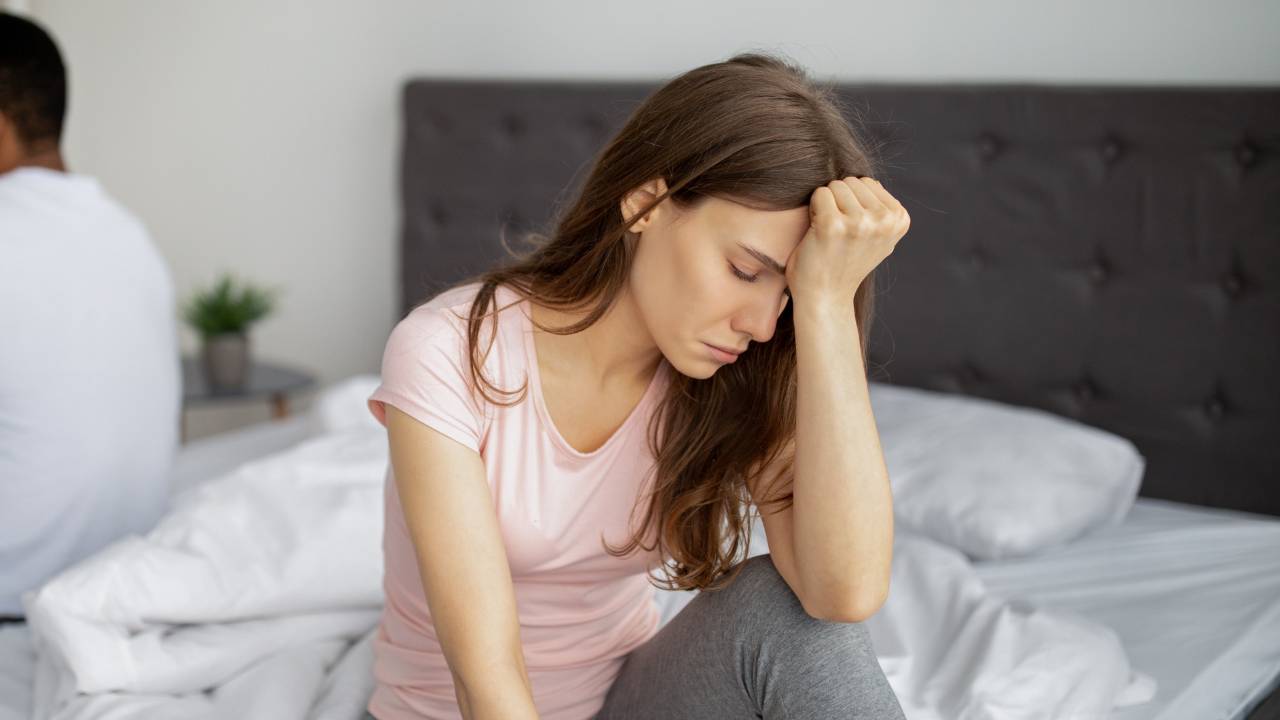Low Libido in Perimenopause? Don’t Guess — Test These Hormones
May 05, 2025
You’re not broken. You’re not alone. And it’s not all in your head.
Low libido is one of the most common — yet most overlooked — symptoms of perimenopause. And more often than not, it’s driven by hormonal changes you can actually measure.
Let’s talk about what’s going on under the surface — and why testing your hormones is one of the smartest things you can do.
Why Libido Drops During Perimenopause
During perimenopause (which can start as early as your late 30s and continue through your 40s), your hormones don’t just “decline.”
They fluctuate dramatically — like a hormonal rollercoaster.
One week you might feel emotionally connected and energetic… the next, completely flat, disconnected, and uninterested in intimacy.
Here’s what’s commonly driving that:
The Hormones Behind Low Libido
1. Testosterone (Total & Free)
Testosterone is your libido hormone — crucial for sexual desire, fantasy, arousal, and orgasm.
In perimenopause, testosterone often declines significantly. Most women with low libido test at:
-
Total Testosterone: <0.4 nmol/L (optimal is closer to 1.0–2.0)
-
Free Testosterone: <5 pmol/L (optimal is ~8–15)
If you're feeling “meh” about sex, even in loving relationships, low testosterone is often the missing link.
2. DHEA (Dehydroepiandrosterone)
DHEA is a precursor hormone made by your adrenal glands — and it helps produce testosterone and oestrogen.
When DHEA is low, your body struggles to make enough sex hormones.
This is especially common in women juggling work, family, and stress. A DHEA-S test will show if your levels are suboptimal — and if they are, boosting DHEA and/or raising DHEA naturally can be a powerful libido fix.
3. SHBG (Sex Hormone Binding Globulin)
This protein binds up your sex hormones. When SHBG is high (often >70–80 nmol/L), it locks away what little testosterone or oestrogen you have — leaving even less available for your body to use.
4. Estrogen & Progesterone
When ovulation becomes irregular, progesterone crashes, and oestrogen becomes unpredictable.
Low oestrogen can cause:
-
Vaginal dryness
-
Reduced blood flow and sensitivity
-
Mood changes and low serotonin
Low progesterone affects sleep, calm, and emotional safety — all essential to desire and connection.
What to Test If Your Libido is Low
Test Why It Matters| FSH & LH | High FSH can suggest perimenopause or ovarian decline |
| Oestradiol (E2) | Assesses estrogen – low levels contribute to dryness, low arousal |
| Progesterone | Confirms if you’re ovulating (low = poor sleep, low GABA, anxiety) |
| Testosterone & Free Testosterone | Directly linked to libido, motivation, and mood |
| SHBG | High levels lower your access to estrogen and testosterone |
| DHEA-S Shows if your adrenals are producing the hormones that become testosterone/oestrogen? |
Tip: Testing on day 2–5 of your cycle gives the clearest picture — if you still have cycles.
Natural Ways to Support Libido
1. Nourish Your Hormones Naturally
-
Maca root (gelatinised) – Supports libido, mood, and hormone balance
-
Tribulus terrestris – Boosts libido in women with low testosterone
-
Magnesium + B6 – Supports progesterone and GABA
-
Zinc – Helps support testosterone and lowers SHBG
-
Strength/resistance training – Naturally boosts testosterone
-
Adrenal support – like Ashwagandha or Rhodiola to nurture DHEA and stress resilience
2. Try a Lubricant That Works with Your Body
If intimacy is painful or dry, that only feeds the avoidance cycle.
Try Eternelle by Ellechemy — a luxurious, non-toxic, microbiome-friendly lubricant that nourishes the delicate vaginal tissues. It’s designed specifically for women in perimenopause and beyond.
3. Evening Primrose Oil as a Vaginal Pessary
One of the best-kept secrets in women’s health: Insert one capsule of evening primrose oil vaginally before bed each night. This can dramatically reduce dryness, irritation, and discomfort — and improve natural lubrication over time. It’s simple, safe, and effective.The Bottom Line
Libido isn’t just about desire — it’s a reflection of hormonal, emotional, and physical health.
If you’ve lost your spark, don’t just “push through it.”
Test, don’t guess.
Knowing your hormone levels puts the power back in your hands — and helps you get the right support to feel vibrant, connected, and sexually alive again.
Because pleasure isn’t optional. It’s a part of your vitality.
We have BIG discussions on this with the ladies my team and I work with. AND we help with testing hormones. AND treatment to improve libido. Let me know if you'd like to chat about how we can help you too. Click here to Book a Discovery Call with me: www.andrearobertson.health/12WeekProgram
Andrea x


